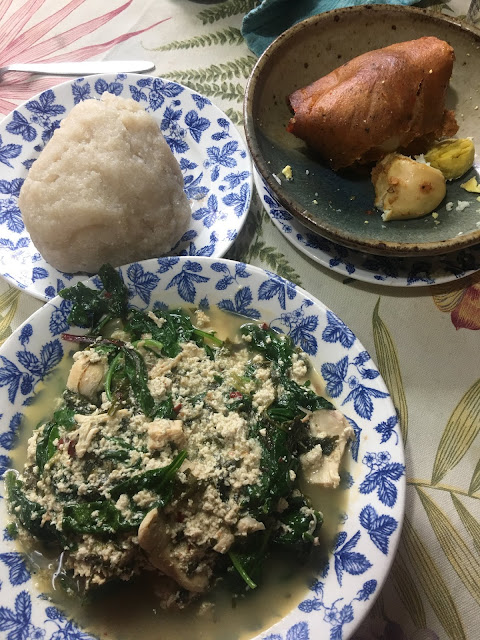I want to share this most recent project with you wonderful supporters of my work. The story of the piece is as follows:
Charm for Asian and African Women Farmers
Caryl Henry Alexander
Tradition, my sisters, is what brings this artwork—Charm for Asian and African Women Farmers—into being. The work was conceived after a lively conversation that I had with three leading women at Vietlead.org, a Vietnamese community cultural organization in Philadelphia, Pennsylvania. The conversation was about growing “bitter melon” (Momordica charantia), which is a much loved and traditional medicinal food in Asia.

There was an elder woman farmer from Vietnam, who had been growing bitter melon for many years. She was happy to share her practice with me. She helped me to understand the plant intimately; and it was a beautiful experience. She explained how to treat the roots as the plant grows to support a strong harvest and made clear how to manage the vine’s growth with a mind to support its proliferation of blossoms and, ultimately, fruit.
For me, it was a magical conversation because I had been studying this amazing plant in my plant medicine classes. The generous spirits of these women are with me in my garden today as I cultivate the plant medicine that supports my well being and that of many in my community.

When I traveled to West Africa this past winter, my plan was to create artworks that are plant-based both thematically as well as materially. I visioned connecting with Nigerian and Ghanaian women farmers and herbalists to learn about their traditions and current practices in plant medicine.
I began to notice at least one of these plants, which is a shrub, in most family urban compounds; and saw fields of the plant being cultivated whenever I traveled to rural areas. I learned about the life cycle of the plant, its anatomy, and how it is grown and used by women to strengthen the health and wellness of their families and communities.
I came to realize that this plant’s medicine, its cultural context, and the connection that the women had to it is quite similar to that of the bitter melon. The bitter spirit of these plants is what is most prized in both culinary and medicinal practice.
It is in the healing energetics of the plants in this charm that I endeavor to connect my Asian and African farming sisters. It is a coming together of the power of the earth, the soil, water, and the seasons.
Thank you, my Asian and African sisters, for sharing your wisdom and connection with our planet. We are one in our love of the earth.
Charm for Asian and African Women Farmers was created in Ibadan, Nigeria; Ntonso, Ghana; and Clinton, Maryland (USA).
It is comprised of plant-based materials including banana and pineapple leaves, lemon grass, cotton, sumac flowers, onion skin, English ivy, and bamboo; and finished off with acrylic paint and love.











No comments:
Post a Comment